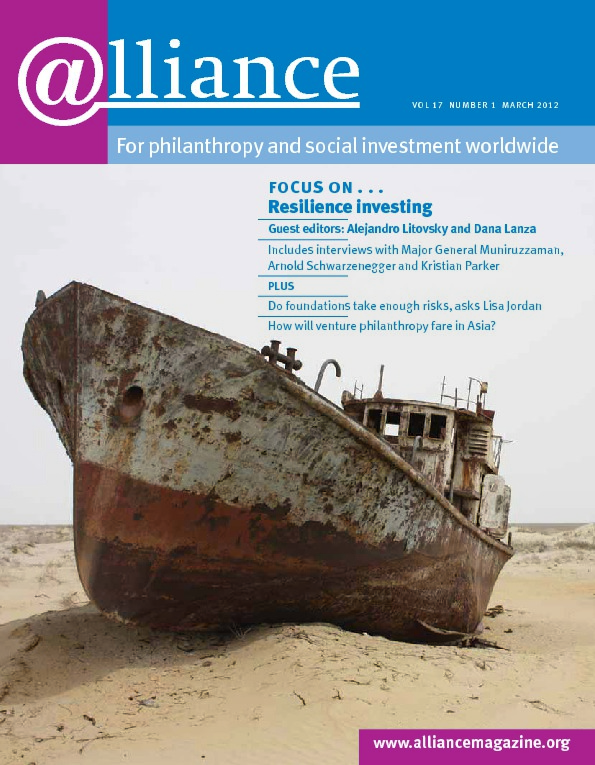I would like to congratulate Jacob Harold for his interesting suggestions in his article ‘Gorillas in the midst: foundation accountability in a networked age’ in the December issue of Alliance and for highlighting how ‘a new governance bargain’, created for a business, governmental and non-for-profit environment, can be adapted to foundations.
I was pleased to see that his four accountability behaviours are becoming more and more applicable to the Indian context in which I have been working for the past three years. While stricter accountability in philanthropic donations remains a challenge in India due to an environment of inadequate legislation, lack of transparency, and the endemic plague of corruption that permeates all sectors, there have been many green shoots in recent times that allow for an optimistic outlook.
The most common model of philanthropy in India is the formation of a foundation or public charitable trust, created and funded by a family-run business. It is true that in the majority of cases, these corporate foundations are still viewed as a separate CSR entity and commonly lack the processes and measurement of outcomes found in the parent enterprise. Most of their funding is still in the form of short-term contributions and concentrated on PR-friendly and popular projects such as textbooks, medicine and food distribution. In addition, many philanthropists remain oblivious to the greater impact that could be achieved with a more strategic approach.
However, the past five years have seen the emergence of a new generation of Indian business people who are bringing new energy and increased involvement to their philanthropic efforts. Many corporate foundations are moving beyond charity and the mere distribution of handouts to the underprivileged.
Instead, they are investing their time and larger sums of money in social causes that they are passionate about in order to bring about systemic change in society. Indian foundations are thus beginning to be staffed with the best people, with the intention of creating strategic partnerships with reputable NGOs, adopting much-needed accountability measures and, more importantly, implementing an active engagement with their stakeholders which was unthinkable only a few years ago, under the then-prevalent paternalist approach.
Much remains to be done, but the younger philanthropists are setting a new, vibrant and promising tone and their energy and dedication can really make a meaningful contribution to tackling the many social issues still rampant in the country in a more efficient and accountable manner.
Cristiana Peruzzo
Head of CSR, Innovaid Advisory Services, Mumbai






Comments (0)